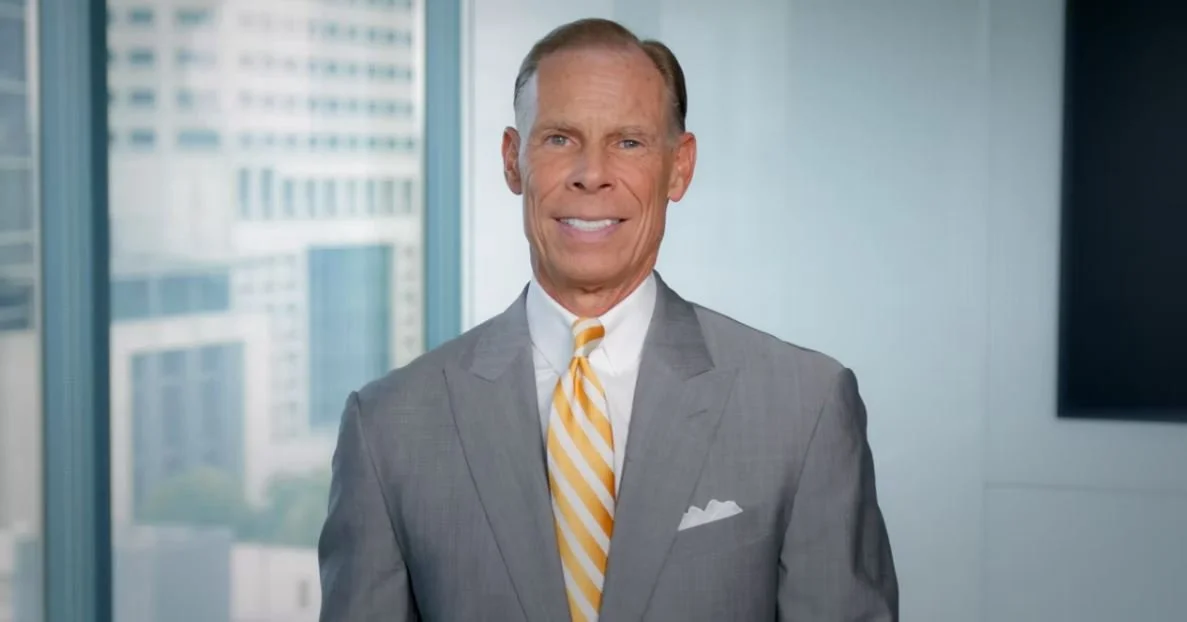Raking in Returns
By Jack Willoughby
October 19, 2013
America’s money managers expect stocks to rise 7% from now through the middle of next year. They like Europe, tech shares and real estate, not bonds. Memo to Ben: It’s time to taper.
Whew! It's back to business in Washington after a 16-day government shutdown. And it's back to business on Wall Street—the business of buying stocks, that is.
Markets cheered the news last week that Congress had finally come to its senses, or what passes for the same, in reaching a deal to lift the U.S. debt ceiling and send government workers back to their posts. The Dow rallied 1.4% on Wednesday, and 1% on the week, to 15,399, and the Standard & Poor's 500 rose 2.4%, to a new high of 1744.
America's money managers had a strong hunch things would work out on Capitol Hill, at least for now, and they told us so in their largely upbeat responses to our fall Big Money poll. Sixty-eight percent of participants, representing a cross section of the nation's professional investors, declared themselves bullish or very bullish about the stock market's prospects through the middle of next year, evidence that they see no lasting damage from Washington's latest drama.
"The government shutdown is near-term noise for investors," said Jason Norris, senior vice president of research at Portland, Ore.–based Ferguson Wellman Capital Management, in the days before the deal was announced. "A few months from now, we'll be looking back at what could well be a good buying opportunity. We like that there are a lot of skeptics out there. It means the stock trade isn't crowded."
Robert Turner, chairman of Turner Investments in Berwyn, Pa., calls this "the most joyless" bull market in history, given the doubts attendant to every point rise in the Dow. But you won't find much hand-wringing in his office, as he expects strength in corporate fundamentals to persist. "For 18 quarters, earnings have come in above expectations, and that won't change," he notes. "Shares are still reasonably valued. These runs don't end unless excesses are created, and I don't see any excesses."
Healthy corporate balance sheets and a world economy that is slowly healing also are working in stocks' favor, says Stephen Drexler, a managing director of Wells Fargo Advisors in Colorado Springs, Colo. "Slow and steady with little fanfare and still much to worry about isn't a bad backdrop," he says.
Yet, even after adding up the pluses, the pros have pulled in their horns some since spring. Back then, a record 74% of poll respondents said they were bullish on stocks.
Today's bulls see the U.S. market advancing by only single digits through next June. Based on their consensus estimate, the Dow will rise 7% between now and then, ending this year at about 15,700 and mid-2014 at 16,486. The bulls see the S&P 500 gaining 5%, to 1824, by the middle of next year, and the Nasdaq adding 5%, to 4116, in that span.
The managers' subdued forecasts reflect the fact that 71% of poll participants now regard stocks as fairly valued, compared with 58% in the spring. Only 15% consider the U.S. market undervalued, down from 26% last April.
The S&P 500 is trading for 14 times next year's expected earnings of $122.19, which, from a historical perspective, makes the market neither rich nor cheap. Just over half of the Big Money managers expect the price/earnings multiple to expand in the next 12 months, while 11% see a contraction, and the rest see no change.
"We're unlikely to see the gains in stocks that we've had in the past couple of years, just because valuations are higher," observes Todd P. Lowe, president of Parthenon, a Louisville, Ky., money manager. "Also, the Federal Reserve is going to unwind [its bond-buying program]. We're not optimistic it will be able to do so seamlessly."
John Fox, co-manager of the $900 million FAM Value fund, sees long-term returns "in the high-single/low-double digits over five to 10 years," reinforcing the need for savvy stock-picking. He looks to capture faster growth overseas by investing in U.S. companies with big footprints in Europe and China. Also, he applauds corporations with substantial cash flow that enhance value by buying back shares, paying dividends, and merging.
According to the Big Money pros, rising corporate profits, stronger economic growth, and better employment news are the three factors that would be most likely to send U.S. stocks sharply higher in the next six months. Better news about China's economy also would reverberate positively here.
The managers finger continued political dysfunction as the most likely rally-killer, followed by earnings disappointments and slowing economic growth. "The rhetoric from both political parties is holding back the recovery," says C.T. Fitzpatrick, founder of Vulcan Value Partners, in Birmingham, Ala.
Hands down, the Big Money managers view the stock market as the best place for your money over the next 12 months—and the next five years. On a near-term basis, 80% expect equities to outperform all else, while 6% are betting on cash, and 6% on real estate.
About half of the managers think the U.S. will be the best-performing market in the next 12 months; 24% say European equities will shine brightest as the Continent emerges from a multiyear slump; and 8% are putting their money on Japan. Many managers expect emerging markets to do best over five years, outperforming the U.S., a reflection of the rapid growth of developing economies.
Among stock-market sectors, the managers like technology best, given the industry's strong fundamentals. Thirty-two percent are betting that tech will lead the pack in the year ahead, with 11% backing financials, and 10%, energy stocks.
Norman Conley, chief executive of JAG Capital Management in St. Louis, sees revenue growth as a key to lifting sectors. "There is only so much you can achieve from balance-sheet machinations, and the markets are slowly starting to recognize that," he says.
Conley favors industrial and technology stocks, and prefers biotech stocks to relatively staid large-cap drug and consumer-staples companies.
Utilities get little respect from our crowd. With bond yields edging up, about a third of the Big Money crowd thinks utility shares will be the worst performers in the next 12 months. The managers also worry about the outlook for consumer-cyclical and financial issues.
The managers' big bet on tech is apparent from their favorite stocks, a list topped this fall by Apple (ticker: AAPL), Google (GOOG), and Microsoft (MSFT). Strip out Apple's net cash, notes Fitzpatrick of Vulcan, and the shares, now $508, sell for only seven times expected earnings.
Other favorites include Samsung Electronics (005930.Korea), EMC (EMC), energy-pipeline operator Kinder Morgan (KMI), and CF Industries (CF), a fertilizer producer.
As usual, there is broader agreement on the market's most overvalued issues, with Tesla Motors (TSLA), the electric-car maker, the managers' No. 1 pan. The company is expected to sell only about 20,000 cars this year, but sports a market value of $22 billion, or $1.1 million per vehicle.
Netflix (NFLX), Amazon.com (AMZN), Facebook (FB), and Salesforce.com(CRM) also look too richly priced in the view of survey respondents. And some think the same of, yes, Apple.
The big money poll is conducted twice yearly, in the spring and fall, with the help of Beta Research in Syosset, N.Y. Our latest survey, mailed in mid-September, just after the Fed's policy makers met, drew responses from 135 institutional investors, representing some of the U.S.' largest asset managers as well as smaller firms.
Just 8% of respondents describe themselves as bearish about the outlook for stocks through next June. Nearly one in four is neutral, up from 19% in the spring. The bears expect the Dow to close the year at about 14,450, and drop to 14,016 by next June. They see the S&P 500 falling to 1609 by year end and 1561 by mid-2014, and the Nasdaq trading at about 3400 in nine months, 13% below its current level.
Most bears say the bull market's fate is tied to future Fed moves to curb quantitative easing, as its bond-buying program is known. The Fed has been purchasing bonds to drive down interest rates and stimulate economic growth.
Jason Brady, manager of the Thornburg Strategic Income fund, says that accommodative central-bank policy has pushed money into risky assets, artificially inflating stock prices. If corporate earnings falter and the Fed starts to taper, the rationale for current prices will be undermined.
Brady expects this negative scenario to play out over time; he sees the Dow holding at 15,000 for the remainder of this year before dropping to 14,000 six months hence. "If quantitative easing has been really effective in spurring economic growth, taking it away can only lower growth prospects," he contends.
William Tempel, chief investment officer at Reynolds Capital Management, a family office based in Fort Worth, Texas, argues that price distortions created by two rounds of QE make it difficult for equity investors to determine what true value is. "It is difficult to get a good understanding of what you should be buying when it is financed with 2% money," he avers.
Consequently, Tempel has been investing in start-up businesses, such as a salt-extraction enterprise in the domestic oil- and gas-producing region known as the Bakken shale. Start-ups, he notes, offer opportunities to build value independent of the Fed's moves.
Seventy-two percent of Big Money managers are bullish on real estate, in part because its returns aren't correlated with financial markets. Thirty-four percent are bullish on commodities, and 29% like gold. The yellow metal rallied 3% on Thursday, to $1,320 an ounce, amid short-covering and expectations that the cost of the government's shutdown would further postpone the Federal Reserve's plans to taper its asset buying. Gold closed the week at $1,316 an ounce.
Largely because of the U.S. central bank's policies, it's hard to rouse a kind word for bonds from the managers. Only 9% are bullish on U.S. Treasuries, though 18% think positively of corporate bonds. Just 4% see any value in bond-related mutual and exchange-traded funds.
Greg Melvin, chief investment officer at Pittsburgh's CS McKee, says that stocks will outperform, even with the market "fairly valued," precisely because of the dismal prospects for bonds. "Our client base of pension funds has no alternative but to put money into stocks to meet their actuarial assumptions," he says. "Rates will go up for the next 30 years, leaving almost zero return for bonds."
What's true of institutions could also pertain to individual investors. Chas Smith, president of CPS Investment Advisors in Lakeland, Fla., expects the rotation into stocks, which began this year, to gather steam as retirees book losses on their fixed-income accounts. "This will cause bond-fund redemptions," he says. "The Fed has manipulated interest rates to artificially low levels. Rates have to rise."
Like most investors, the Big Money managers are trying to gauge when the Fed will pull back from the market and let the economy stand on its own. After all, 80% say monetary policy influences their investment decisions significantly or somewhat. Only 4% say it's of no consequence.
Two-thirds of our respondents disagreed with the central bank's decision last month to postpone tapering, although 80% expect the Fed to reduce its bond purchases starting in next year's first half. As one manager said in written comments, "If the economy is improving, the bond-buying program should end. If the economy isn't improving after multiple years of bond-buying, it may be time to try a different strategy."
Another noted that while QE has been beneficial personally, persistently low rates "are destroying savers, senior citizens, and people in the middle and lower classes."
Or, as James Spence, co-founder of Spence Asset Management in Las Cruces, N.M., put it, "the Fed assumes there is no cost to using monetary policy to cure problems not caused by monetary policy."
As the Fed pulls away from the market, bond yields are expected to rise. The yield on the 10-year Treasury has already jumped to 2.58% from a low of 1.6% in May, and 3% no longer seems so distant. Indeed, 76 of the Big Money managers expect the 10-year to yield 3% to 3.5% a year from now, while 17% see yields of 4% or more.
For all of the doubts they express about QE and its chief architect, Federal Reserve Chairman Ben Bernanke, the money managers are split in their assessment of the strategy's results. Two-thirds say that quantitative easing has been beneficial to neutral for the U.S. economy, at least until this point, although it could prove harmful if prolonged.
Gross domestic product increased in the second quarter at an annual rate of 2.5%, and a third of the managers look for that pace to be sustained in the next year. Another 21% foresee GDP growth of 3.5% or more.
At these growth rates, inflation doesn't seem a worry, at least to half of the managers in our survey. As for the rest, 36% predict that prices will rise, and 13% aren't sure.
Most respondents expect unemployment to stay stuck at about 7% to 7.5% in the next 12 months, but slip to 6%-6.5% the following year—yet another sign of modest progress. The managers also see continued good news for the housing market, which has picked up this year.
The Big Money men and women see little change in oil prices in the year ahead. West Texas crude is trading at $100.81 a barrel, and their mean forecast puts it at $104.37 in 12 months. John White, of Triple Double Advisors in Houston, thinks prices might drop, however, now that Libya is back in the oil market. The growth of domestic shale-oil and gas production underpins his optimism about the U.S. economy and the stock market. "The U.S. is benefiting from cheaper and more abundant natural gas," he says. "This should allow us to build out manufacturing and infrastructure."
Most of the investment managers in our survey pay less attention to fiscal than monetary policy, but that doesn't mean they don't keep a close eye on Washington, especially these days. While it's early to be handicapping the 2014 midterm elections, we asked them to do just that.
More than 90% expect the Republicans to retain control of the House of Representatives in the next Congress, and 68% look for the Democrats to keep the keys to the Senate. That suggests more wrangling and less clarity ahead about taxes, government spending, and regulation.
The S&P 500 has rallied 22% this year, with little help from Congress but plenty from the Fed. It has been tough even for professional investors to keep pace. Still, 65% of Big Money managers say they're beating the market this year, and the rest probably are rushing to catch up. That's another reason to think the bulls will stay in the driver's seat for now.













